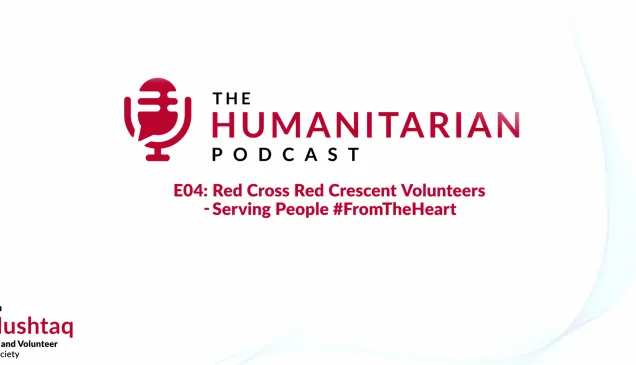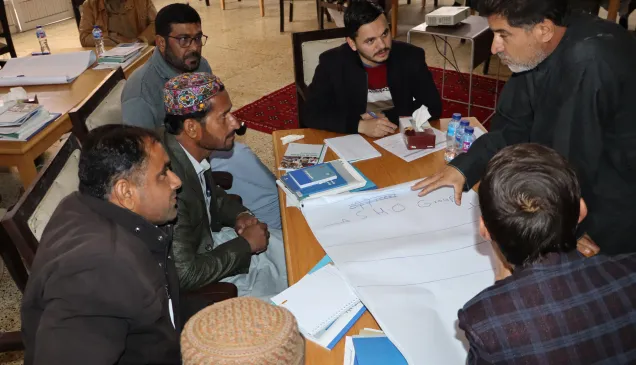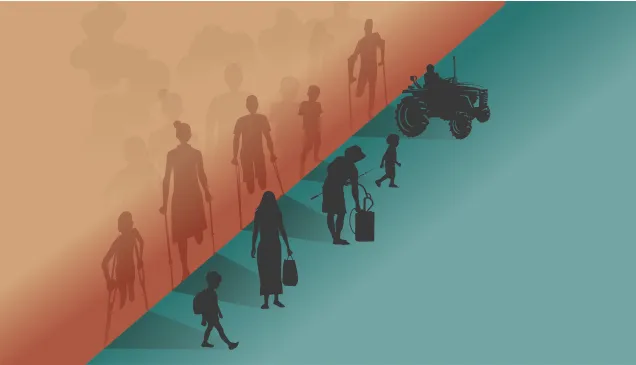Pakistan: Summit emphasizes social inclusion of women with disabilities
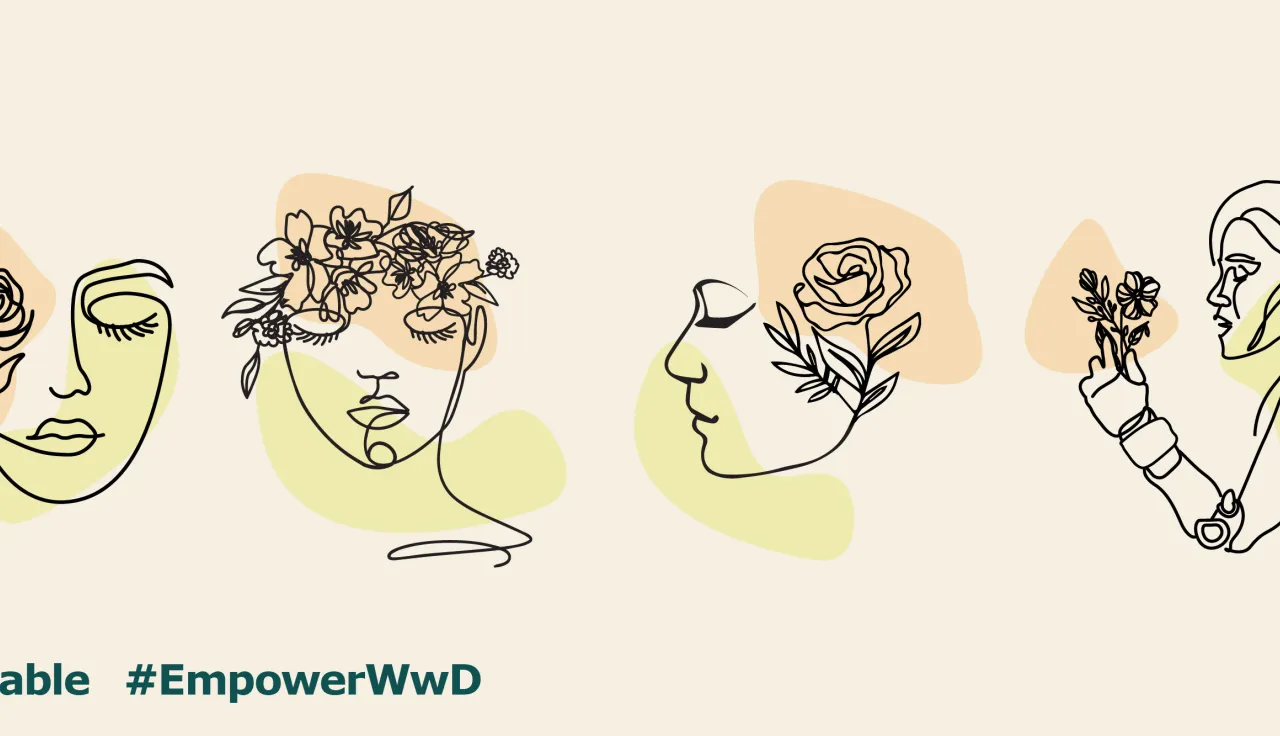
About 65 per cent of people living with a disability in Pakistan are women and girls, their existing gender disadvantage compounded by their disability.
In December 2022, the International Committee of the Red Cross (ICRC) held a two-day National Summit for the Empowerment of Women with Disabilities in partnership with the National Forum of Women with Disabilities. The summit aimed to analyse the barriers women with disabilities face in Pakistan, explore solutions and design an integrated action plan to ensure their multisectoral inclusion.
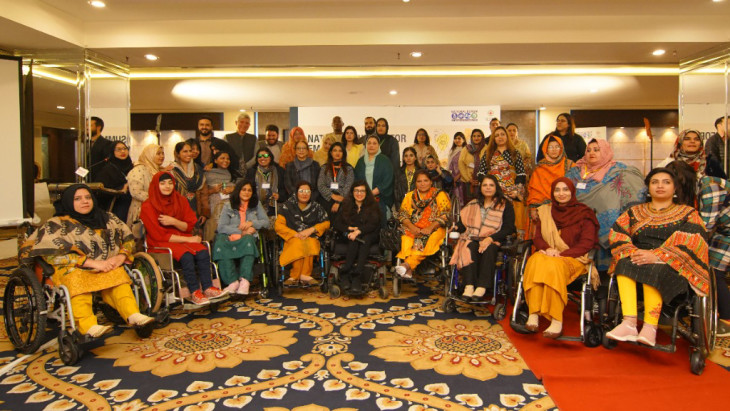
The event brought together over 90 participants, including 30 women with disabilities, from various organizations working for people with disabilities across Pakistan, government authorities, civil society and humanitarian organizations. People who are blind or partially sighted, people with hearing disabilities and people with physical disabilities were represented among the diverse group of participants.
Only by acquiring inclusive, equitable and quality education and recognizing their legal rights can women with disabilities work towards their empowerment and overcome the many constraints that lay in their path.
Participants emphasized the need for segregating data to design inclusive policies and deliver services based on individualized support and environmental requirements. They also discussed common challenges, best practices, ideas to promote the full participation of women and girls with disabilities and strategies to overcome stigma and prejudice.
A lack of societal awareness surrounding the issues and rights of people with disabilities was one of the main challenges that participants identified. They recommended that inclusion and advocacy for equal opportunities for people with disabilities should be taught in schools and inclusive educational institutions should be made more accessible for girls and women with disabilities. These long-term solutions could potentially ensure that the rights of people with disabilities are respected and protected.
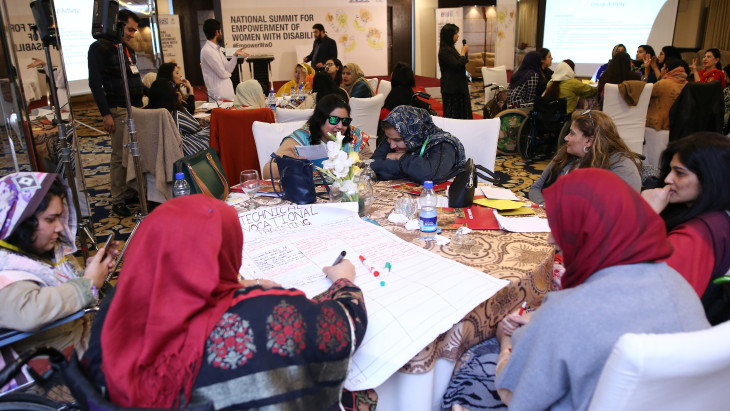
The discussions resulted in an action plan to promote capacity-building, strengthen coordination and advocacy. The action plan also stresses on partnerships that will facilitate the inclusion of women and girls with disabilities and their representative organizations in decision-making processes and policy formulation.
Advocacy on the right platforms can lead to change at the policy level as well as change in understanding the context. A change in mindset is required.
The action plan outlined possible initiatives to push for inclusion in four areas: the family and community, education, sports and employment or economic security.
"We need, both immediate and progressive efforts for the inclusion of women and girls with disabilities in all walks of life in Pakistan. This includes engaging through advocacy, sectoral capacity-building programmes and creating a space for them to partner with government agencies," said Mohammad Iqbal, disability inclusion adviser at the ICRC.
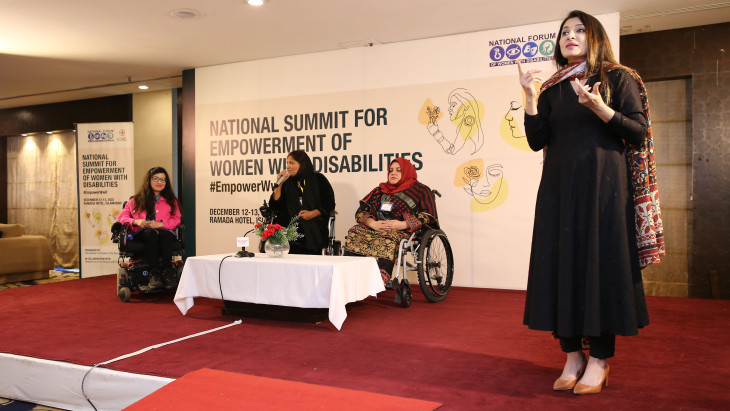
Since 1984, the ICRC's physical rehabilitation programme in Pakistan has been working in partnership with authorities and local organizations to ensure that people with physical disabilities have access to quality and sustainable rehabilitation services and are able to play an active role in society. In the last three years, more than 82,000 people with disabilities have benefited from the ICRC's physical rehabilitation and social inclusion initiatives, in line with its Vision 2030 on Disability.

